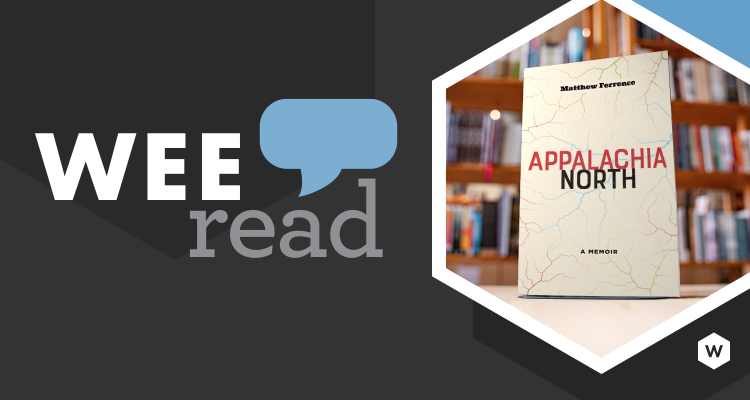Appalachia, even to us West Virginians, seems at times like a foreign place. Appalachia is over there, not here. Appalachians are them, not us. In reality, Appalachia, as defined by the Appalachian Regional Commission (ARC), is home to more than 25 million people over 205,000 square miles in 13 states.
Obviously, the population, culture and even terrain of the region varies, which spurred the ARC to divide the area into five sub-regions. Wheeling and the rest of the Northern Panhandle, along with parts of Ohio, Pennsylvania, Maryland and New York, are part of what is known as northern Appalachia. For decades, not much work had been done to better understand the people of the northern sub-region, but that is changing.
Recently, a number of scholars and writers have taken a keen interest in northern Appalachia, including Allegheny College professor Matthew Ferrence, who is the author of the new memoir, Appalachia North. He explores the conflicts and contradictions of living in a region that is simultaneously a source of pride (work ethic, natural resources, urban infrastructure) and despair (opioid epidemic, rust belt, generational poverty).
Ferrence contemplates these highs and lows through the unique lens of living with a brain tumor, which compels him to see the landscape of his youth as he sees himself: both fractured and whole.
Ferrence comes to this subject as a critical scholar and an essayist, which means that the texture of the story he tells is sophisticated in as much as it is down to earth and accessible. We have all felt the way he does about Appalachia:
“I never thought of myself as Appalachian, not when I was young. My friends didn’t play mountain music. … We didn’t speak with twanging accents … or clog dance or do anything that marked us as Appalachian. We didn’t harbor feuds, make moonshine or smoke corncob pipes. … Certainly, my friends and I would have imagined those stereotypes when thinking of Appalachia, not realizing this was also us.”
If then, we are NOT those stereotypes, then who are we? Ferrence doesn’t answer that question directly. In fact, he is quite clear in stating that he is just beginning to come to terms with what it means to be from northern Appalachia, which he argues includes parts of Canada as well. We are children of coal miners and steel workers and lawyers and teachers. We are students of the natural world and cityscapes. We are citizens of land ripped open by machines and healed by the planting of thousands of trees.
Along the way, Ferrence takes readers with him on his multiple doctor visits from the moment he learns that he has a brain tumor through scores of diagnostic tests through surgeries that relieve much of the impact of the tumor, but leave some of it behind. We experience his fears and uncertainties. We root for him to fully recover and yet somehow find ourselves as he does in the end, making peace with reality.
He has no choice but to co-exist with the foreign mass in his brain in much the same way as he learns how to not just survive but thrive in his new understanding of Appalachia. It is possible, Ferrence teaches us, to live contentedly with paradox. To be perpetually ill and miraculously well. To be utterly broken and unquestionably strong.
Appalachia North is an eye-opening exploration of who we think we are and who we hope to become. Understanding the role of place in the formation of identity is crucial in learning how we can become better versions of ourselves. This transformation can take place only with careful thought and determined reflection.
As Ferrence writes of the land and of himself, “Instead of reclamation, I desire the wisdom of repair. That begins with the act of recognition, self-recognition most of all, since change that gestures only outward without settling first inward is doomed.”
We are not doomed, fellow northern Appalachians. We can repair what is broken about our culture and ourselves. We are already inching toward the repair process, but we need to work together to heal ourselves from the struggles we have endured from both without and within. Matt Ferrence’s Appalachia North gives us the first stop on the roadmap to that redemption.


